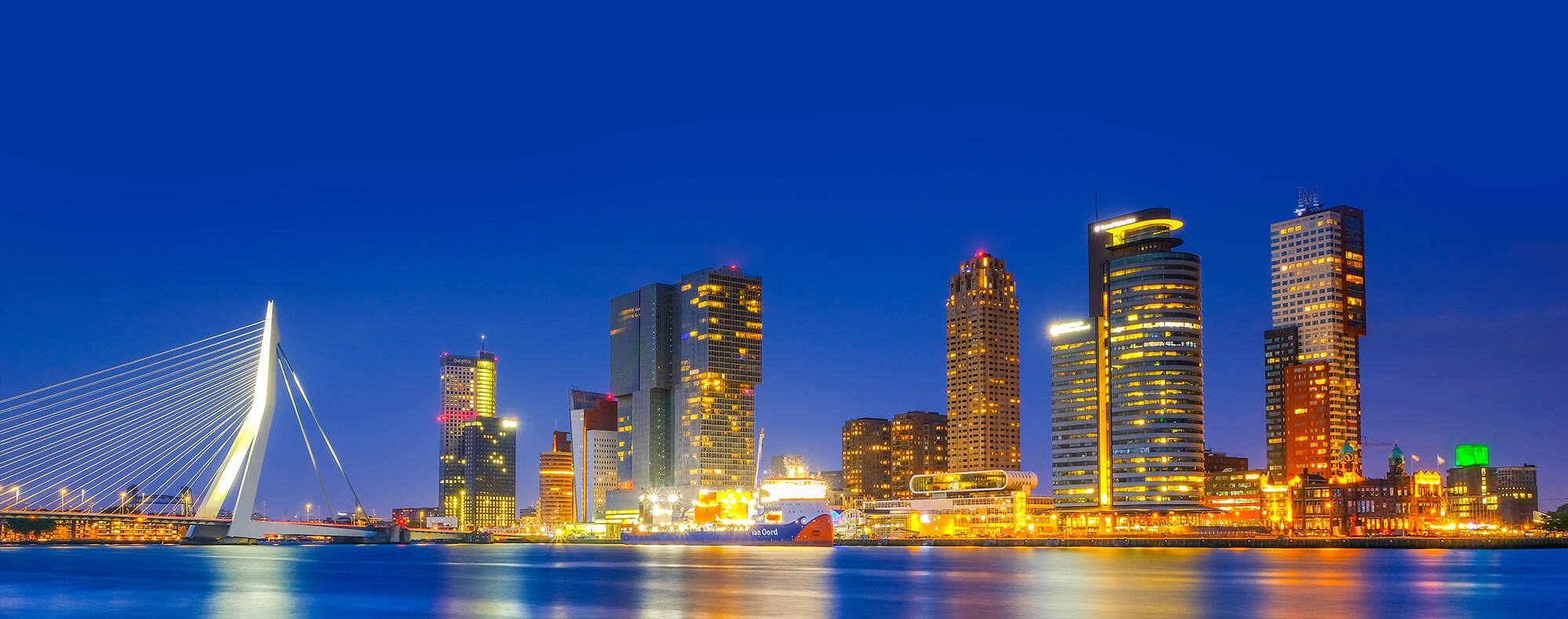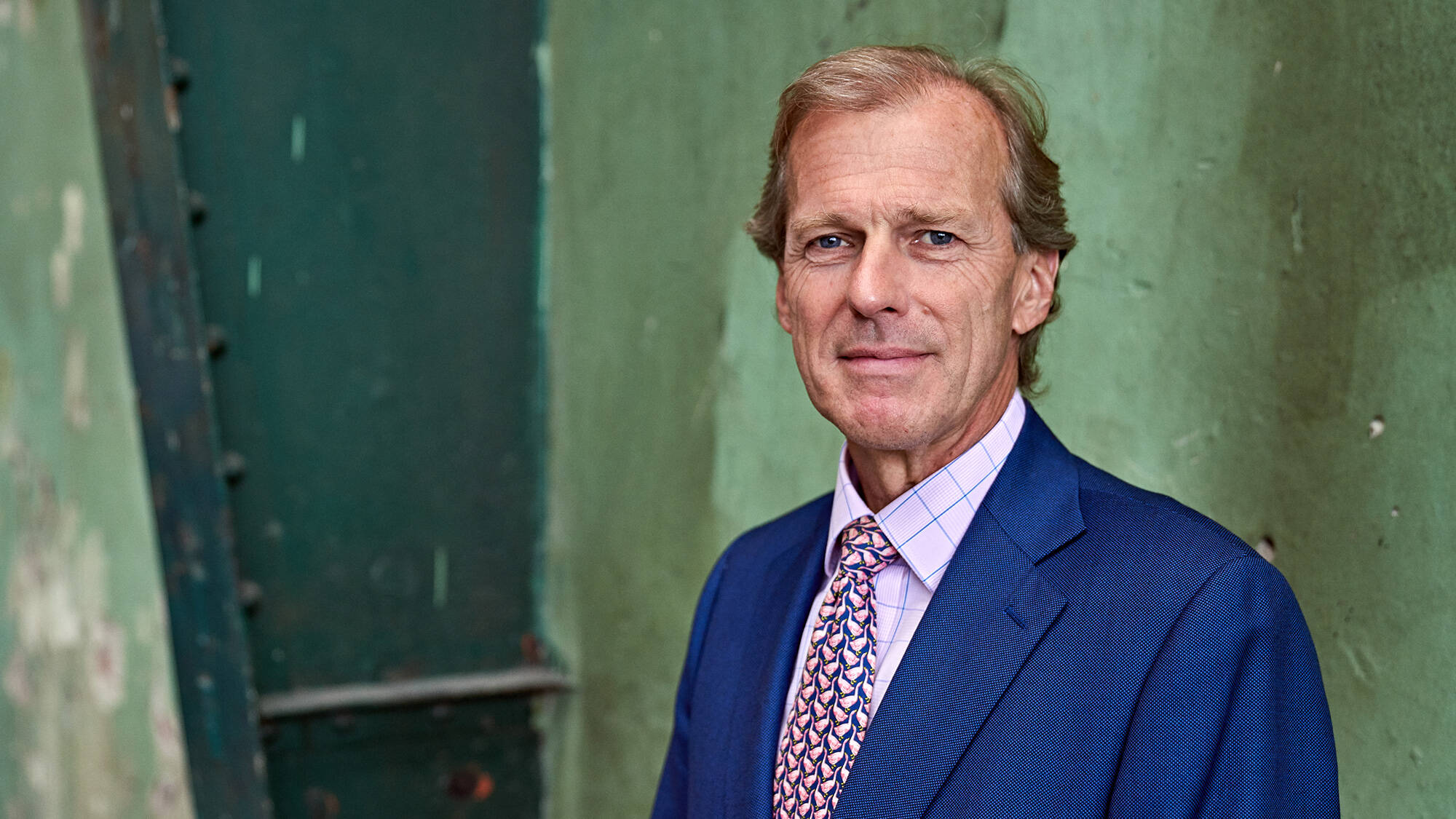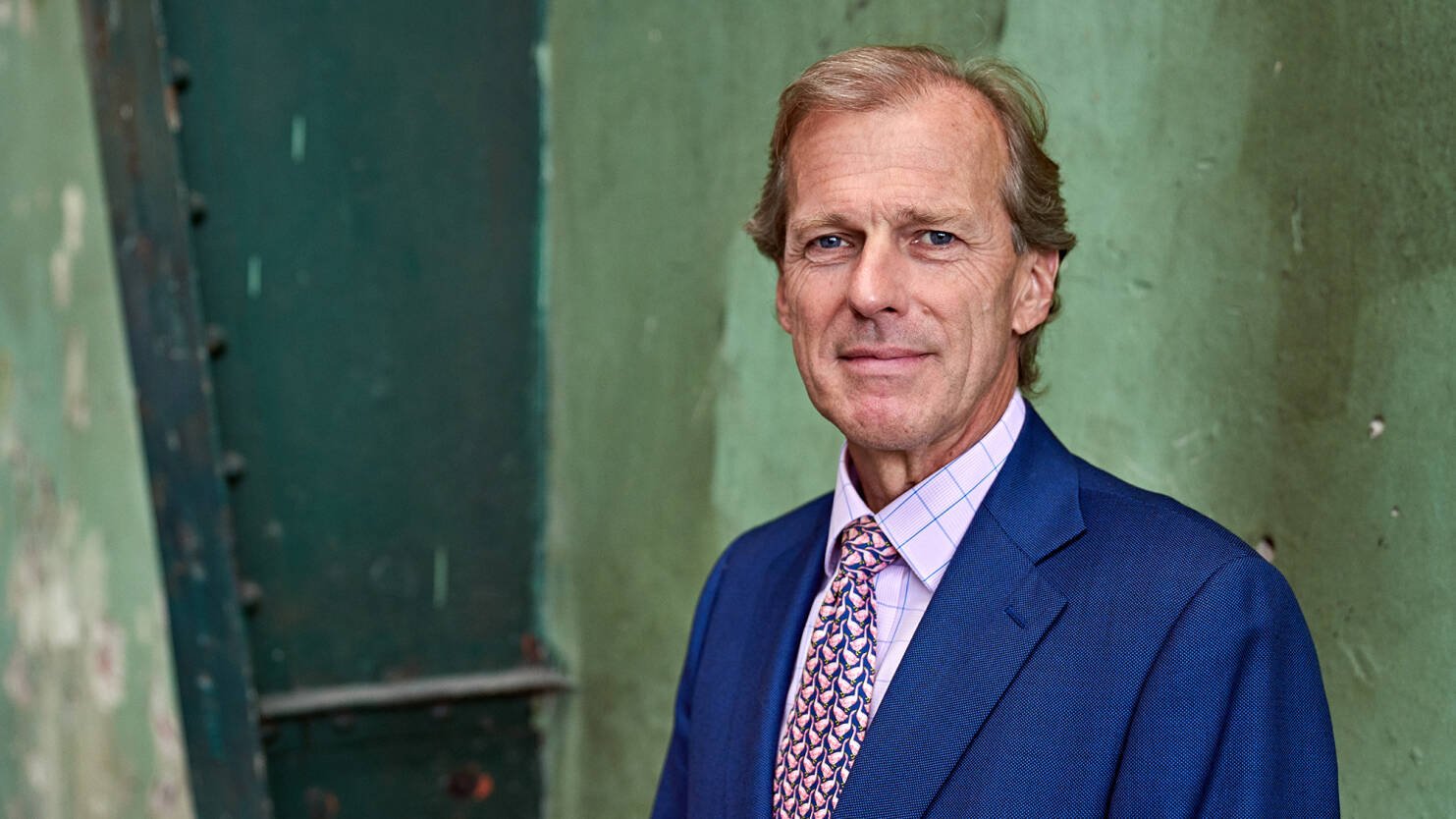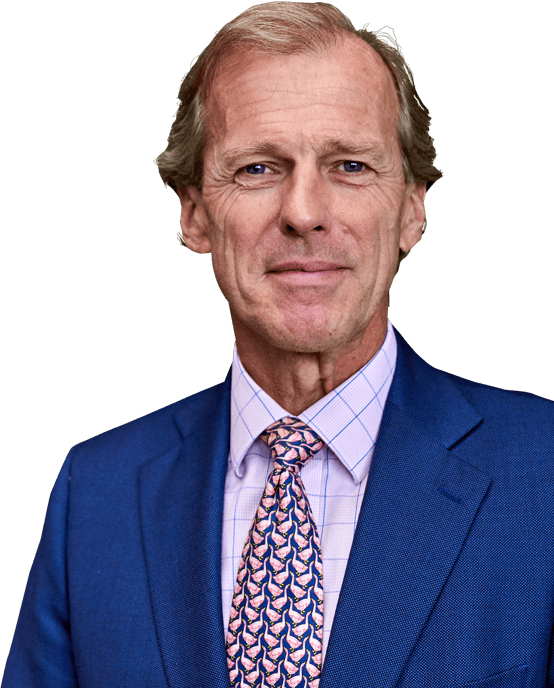
Allard Castelein became the President and CEO of the Port of Rotterdam Authority on 1 January 2014. Allard was born in Rotterdam in 1958 and studied medicine at Erasmus University.
Allard Castelein
challenge
transition
The energy

By signing the Paris Climate Agreement the Netherlands has committed to limiting global warming. It has set itself the goal of reducing its greenhouse gas emissions by at least 49% and preferably by 55% by 2030 compared with 1990. In 2050, the Dutch economy should be virtually carbon neutral.
Rotterdam aims to bring its port into line with the Paris Climate Agreement. The Port of Rotterdam Authority has launched dozens of projects to achieve this aim. Its challenge is to tackle climate change while remaining a thriving port of world stature over the longer term. The Port of Rotterdam Authority believes it can only achieve this by cooperating with partners from the business world, government and science, both in the Netherlands and internationally.

Flagship
One of the most ambitious projects is the construction of an artificial ‘wind farm island’ at Dogger Bank in the North Sea, says Castelein. ‘Our idea is to distribute the electricity generated by the offshore wind farms to surrounding North Sea countries. On the island itself, we can convert wind power into green hydrogen fuel, which is easy to transport and store. The project will get under way in around 2030. It’s complex, extremely challenging, and many motivated businesses are involved. Van Oord may be one of the key partners. It could be a fantastic flagship project and one of the examples showing that we, as a society, are capable of mastering climate change. Rotterdam is demonstrating that a port and industrial complex that became great thanks to fossil fuels is capable of reinventing itself. Here is where we will make the transition from old to new while upholding our key values, and more.’

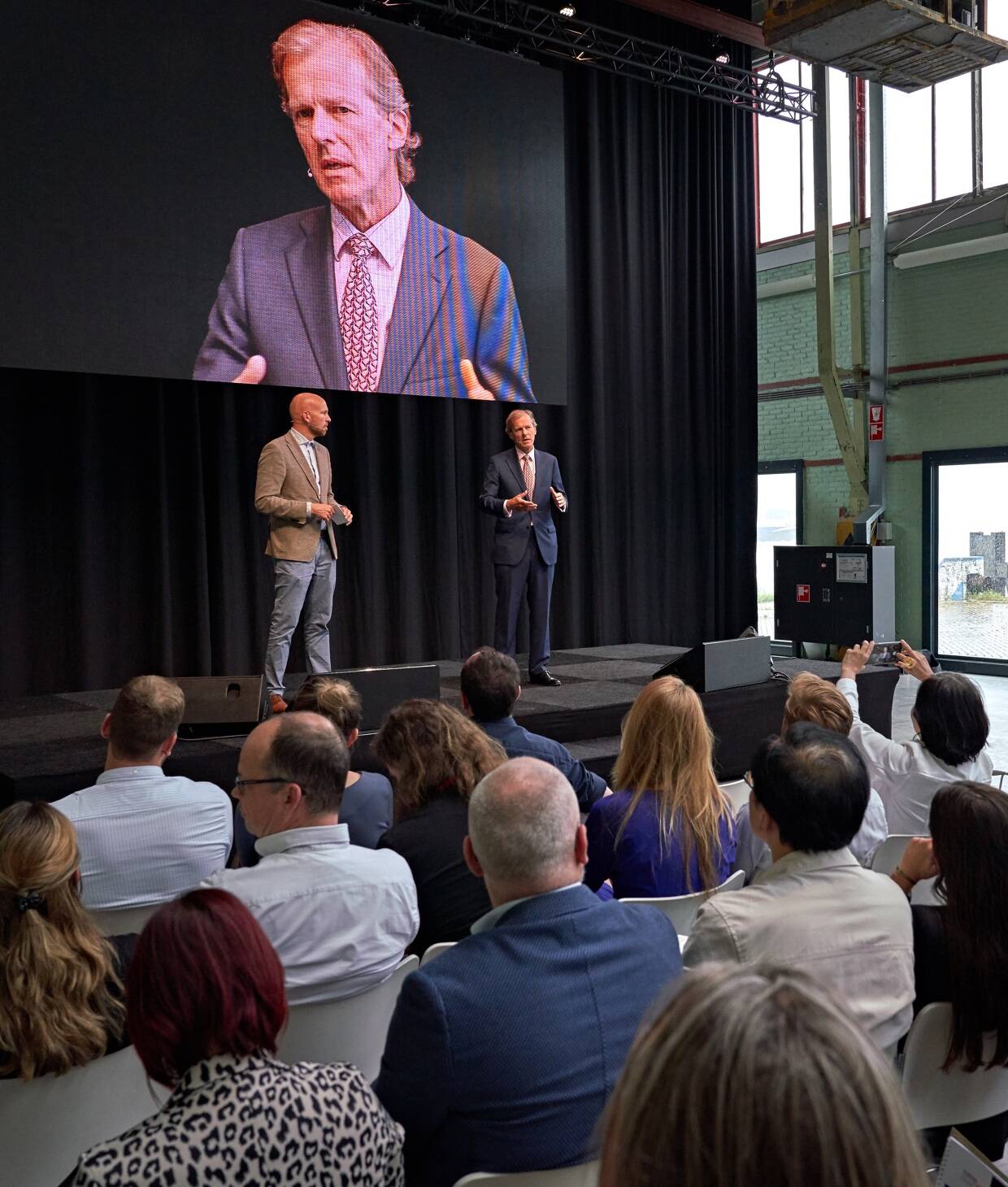
A lot of energy
Cooperation is inherent to the Port of Rotterdam Authority. ‘Our role has changed in recent years, however. Originally, we were there mainly to manage the port. Now we’ve become a developer, initiator, pivot, leader and participant. We need to play an active role. The challenges we face transcend value chains, permits and regions. Our role has grown and the way in which we play it is much more important than it was a few years ago. That gives our enterprise a lot of energy. It makes demands on people, but it also offers us and the businesses located in our port and industrial complex plenty of opportunities. Large companies are increasingly embracing the transition, and smaller ones are taking more and more steps to act sustainably.’
The Port of Rotterdam Authority’s Energy Transition projects portfolio contains more than forty plans. ‘And we’re adding more. They cover a broad field. The opportunities are spread out over a longer period. They include projects that use innovative digital products to make logistics and transport much more efficient and sustainable. We’re also working hard to create an infrastructure that delivers residual heat from the port and industrial complex to homes and greenhouses, and we’re creating more refuelling places for LNG, a cleaner fuel for ships. We also have advanced plans to reuse carbon dioxide in greenhouses and to inject it into empty gas fields under the North Sea. Later this year we’ll be deciding whether to develop a circular economy activity in which we convert waste into bio-methanol, and we’re also exploring the role of geothermal energy along with other businesses. These are just a few examples of the initiatives that we’re developing to achieve the energy transition, slowly but surely.’
New industrial policy
‘The energy transition creates opportunities for the port, the region and Dutch enterprise,’ Castelein indicates. ‘Creative solutions, such as a shared infrastructure for the distribution of steam, residual heat and carbon dioxide and for subsea sequestration, relieves businesses of their worries. They don’t have the same facilities elsewhere, and that helps the Port of Rotterdam remain an attractive business location, now and in the future.’ Castelein puts the discussion about the energy transition in a broader context. ‘I want to embed the transition into a new industrial policy for Dutch enterprise. As a society, we have to be bold enough to allow Dutch companies to anticipate the pathways to the transition, with due regard for efficiency and competition. If we do a good job addressing this, then Dutch companies will gain a competitive advantage. And they’ll have the potential to play the same role internationally. The energy transition in our port can deliver international advantages for us as well.’
In Castelein’s view, industrial policy 2.0 includes a new form of public-private interaction. ‘We’ve built the best gas infrastructure worldwide because five decades ago, our government entered into a public-private interaction. That structure is unique and very powerful. We need the same public-private partnership structure in the energy transition. We could join forces with Gasunie, Energiebeheer Nederland and other large enterprises to build a shared infrastructure and set profitability requirements that are lower than private organisations would expect. So I’m looking for a new public-private partnership that will turn the energy transition into an opportunity and make it advantageous for Dutch enterprise in the long term.’

Allard Castelein
We all know that we can handle the challenges of climate change in technical terms, but politicians haven’t yet got to the point that they’re transparent about the broader consequences for society.

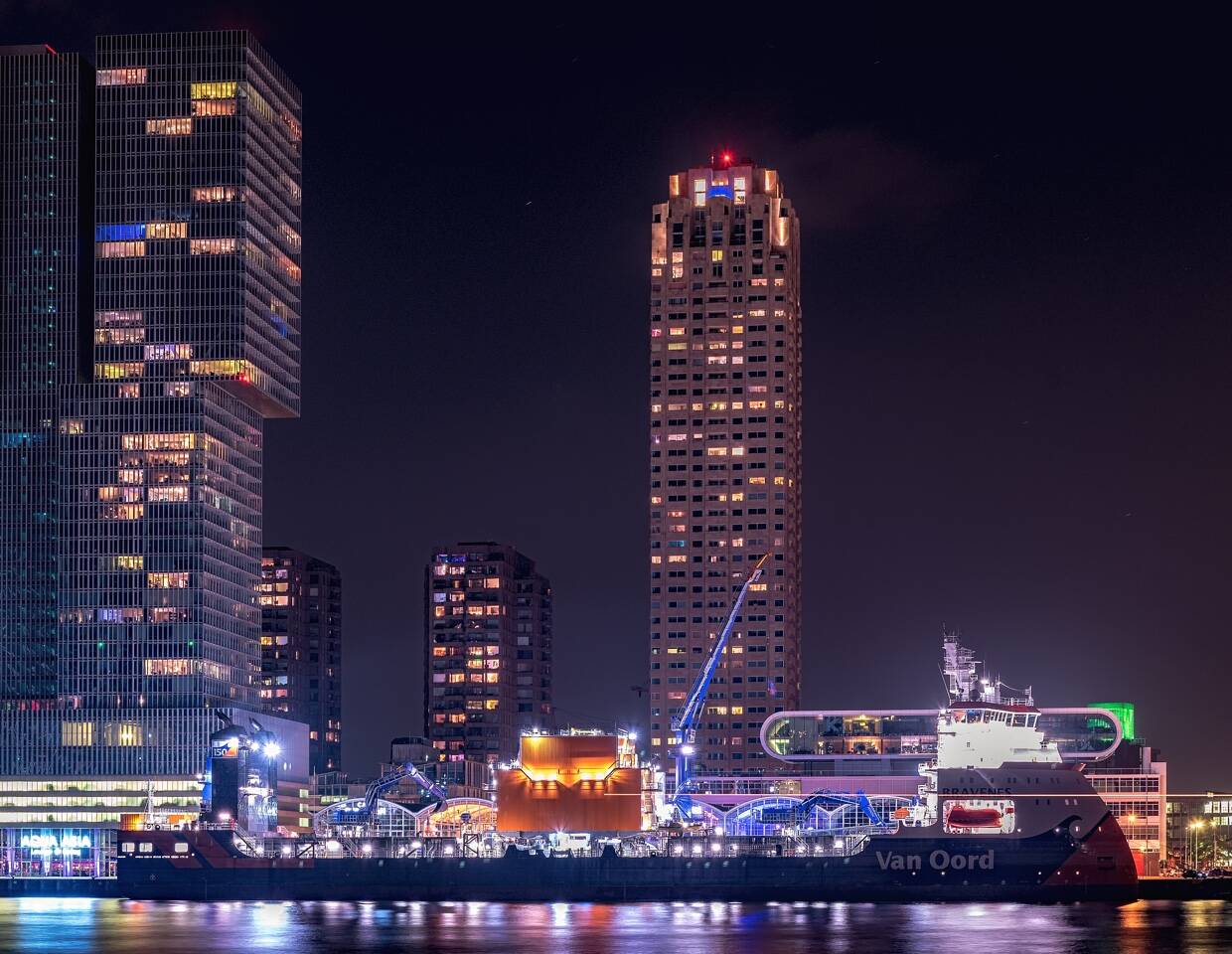
Coordinating role
‘We all know that we can handle the challenges of climate change in technical terms. But politicians haven’t yet got to the point that they’re transparent about the broader consequences for society. That’s leading to deadlock, with parties passing the buck. I believe that the energy transition is a collective responsibility. Our society is built on energy. It underpins our prosperity. At the same time, there is no system as complex as the energy system. That’s precisely why we need a greater coordinating role. Government has the opportunity to plan the energy transition and to develop a long-term policy in cooperation with its partners. The Transition Coalition supports long-term strategy and guarantees. All of Dutch society supported the Delta Works, and the project took many decades to complete. It was hugely expensive, but it was in our nation’s interest. The same argument applies to the energy transition. It too is in our nation’s interest and we need the same feeling of solidarity and acceptance to achieve it. We must be bold enough to seize the opportunity.’
Castelein speaking at the accelerator program
Shakedown PortXL, in which Van Oord collaborates.
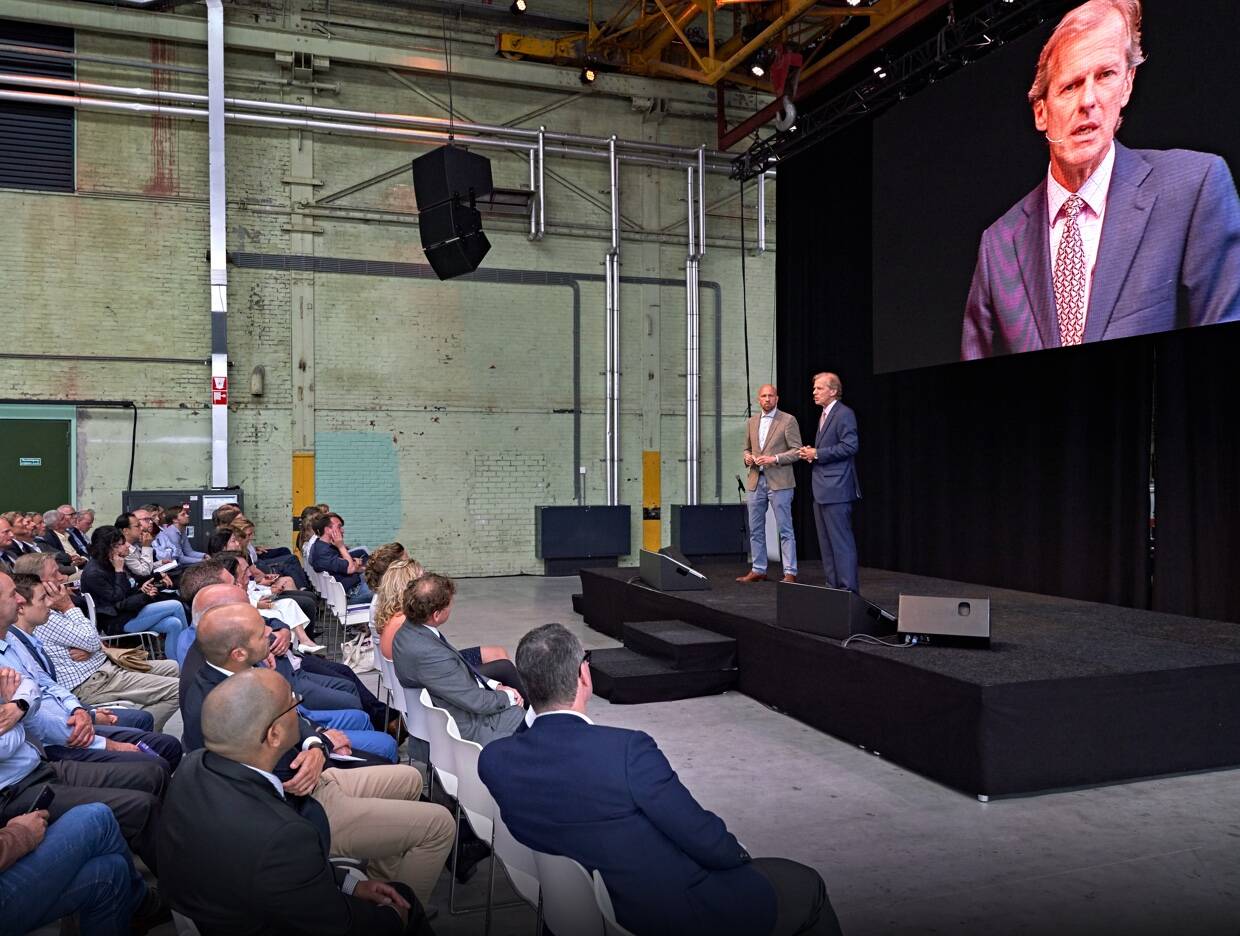
We began the interview with what may seem like an obvious question: is the energy transition moving fast enough? We expected the standard response: no. But Castelein’s answer is more nuanced. ‘That depends on your perspective. Looking back, I would say no. Looking at where we are now, I’d say the glass is more than half full; looking ahead to the future, I’m full of hope. But we’ll have to show whether that hope is justified.’
Opportunities
The founding of the Transition Coalition was an important step in the energy transition. The initiative came from Van Oord, Eneco, Siemens, Shell, the Port of Rotterdam Authority and other leading companies. ‘As a coalition, we made it clear immediately that the energy transition is an opportunity for Dutch enterprise. Now more than sixty companies have joined the coalition. It’s a complex challenge, involving a lot of different parties. To turn this group into a close-knit team, we have to agree on where we want to go and how we want to get there. We have a lot of work ahead, but we’re in a better place than we were two years ago.’
Having a conversation about sustainability with the CEO of the Port of Rotterdam Authority, Allard Castelein, is a unique experience. Outsiders may think he represents the fossil fuel industry. In reality he is a prominent advocate of the transition to a sustainable energy system.


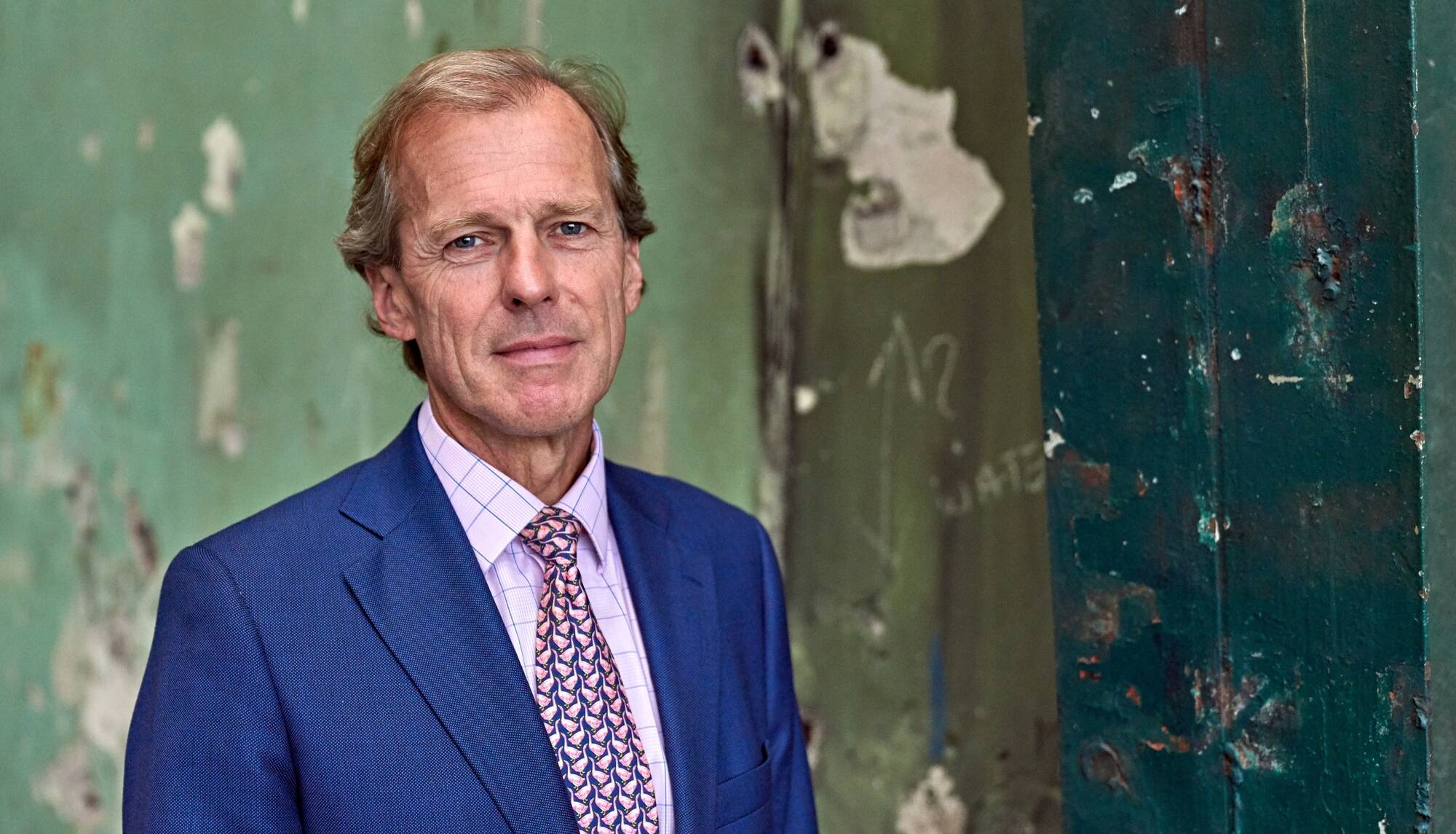

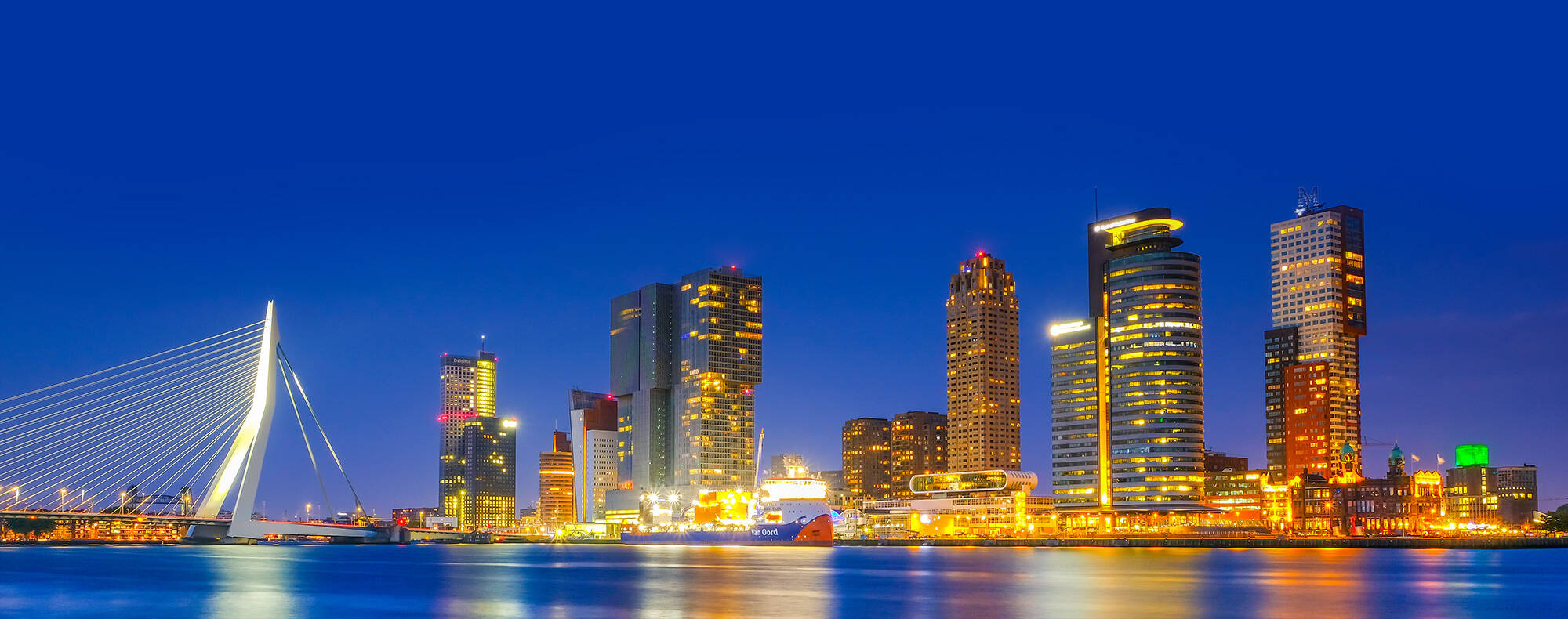
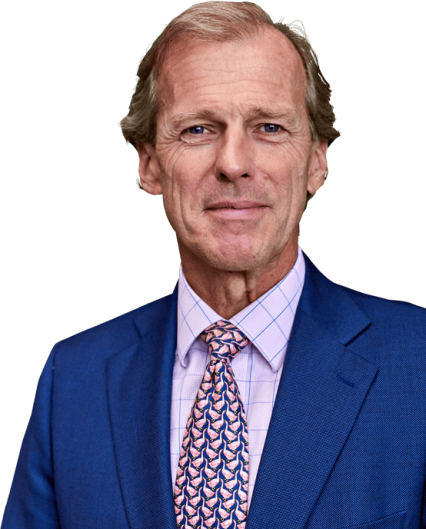
He began his career at Royal Dutch Shell in 1987 first holding positions in trading, sales and marketing.
Beginning in 1992, he relocated with the company to Malaysia, Hong Kong, Saudi Arabia and the United Kingdom, working in various roles from marketing and planning consultancy to business development and general management.
Allard returned to the Netherlands in 2002 to join the Executive Board of the NAM, a Shell-Exxon joint venture.
In 2003 he became Commercial Manager for Shell's European Upstream business, where he led a major
reorganisation and change management
programme.
In 2009 he became Vice President for
Environment at Shell. He headed the
Environment department and bore
global responsibility for strategy,
standards, inspections, and
strategic partnerships.
Allard Castelein became the President and CEO of the Port of Rotterdam Authority on 1 January 2014. Allard was born in Rotterdam in 1958 and studied medicine at Erasmus University.
Allard Castelein
The energy transition challenge
By signing the Paris Climate Agreement the Netherlands has committed to limiting global warming. It has set itself the goal of reducing its greenhouse gas emissions by at least 49% and preferably by 55% by 2030 compared with 1990. In 2050, the Dutch economy should be virtually carbon neutral.
Rotterdam aims to bring its port into line with the Paris Climate Agreement. The Port of Rotterdam Authority has launched dozens of projects to achieve this aim. Its challenge is to tackle climate change while remaining a thriving port of world stature over the longer term. The Port of Rotterdam Authority believes it can only achieve this by cooperating with partners from the business world, government and science, both in the Netherlands and internationally.


Flagship
One of the most ambitious projects is the construction of an artificial ‘wind farm island’ at Dogger Bank in the North Sea, says Castelein. ‘Our idea is to distribute the electricity generated by the offshore wind farms to surrounding North Sea countries. On the island itself, we can convert wind power into green hydrogen fuel, which is easy to transport and store. The project will get under way in around 2030. It’s complex, extremely challenging, and many motivated businesses are involved. Van Oord may be one of the key partners. It could be a fantastic flagship project and one of the examples showing that we, as a society, are capable of mastering climate change. Rotterdam is demonstrating that a port and industrial complex that became great thanks to fossil fuels is capable of reinventing itself. Here is where we will make the transition from old to new while upholding our key values, and more.’
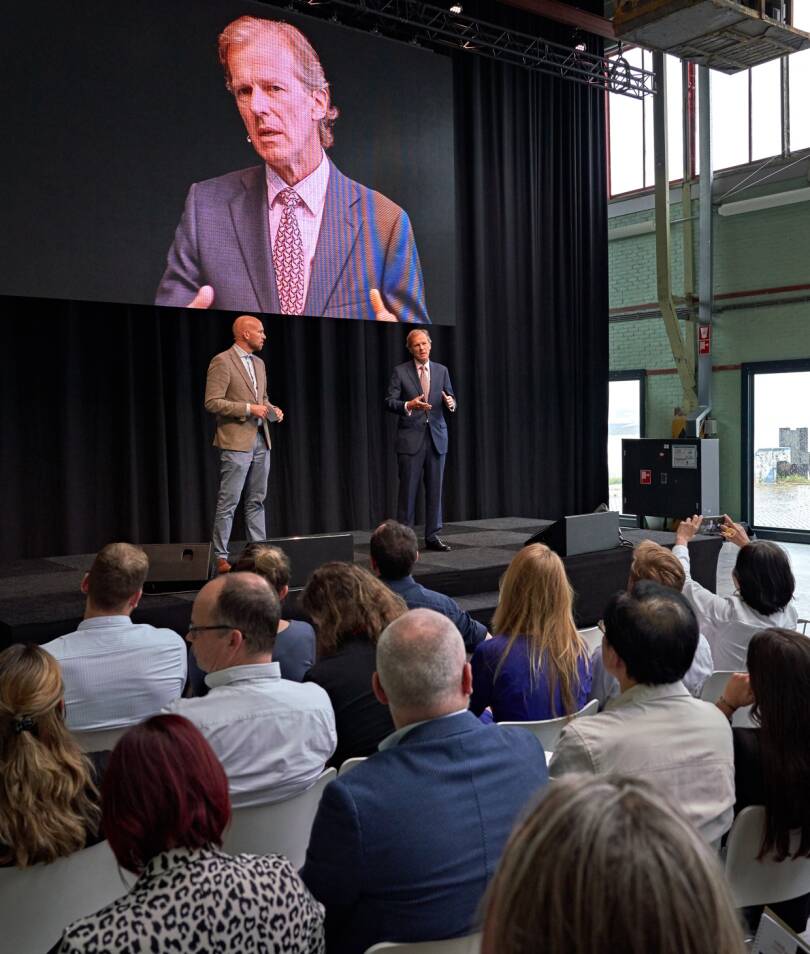
A lot of energy
Cooperation is inherent to the Port of Rotterdam Authority. ‘Our role has changed in recent years, however. Originally, we were there mainly to manage the port. Now we’ve become a developer, initiator, pivot, leader and participant. We need to play an active role. The challenges we face transcend value chains, permits and regions. Our role has grown and the way in which we play it is much more important than it was a few years ago. That gives our enterprise a lot of energy. It makes demands on people, but it also offers us and the businesses located in our port and industrial complex plenty of opportunities. Large companies are increasingly embracing the transition, and smaller ones are taking more and more steps to act sustainably.’
The Port of Rotterdam Authority’s Energy Transition projects portfolio contains more than forty plans. ‘And we’re adding more. They cover a broad field. The opportunities are spread out over a longer period. They include projects that use innovative digital products to make logistics and transport much more efficient and sustainable. We’re also working hard to create an infrastructure that delivers residual heat from the port and industrial complex to homes and greenhouses, and we’re creating more refuelling places for LNG, a cleaner fuel for ships. We also have advanced plans to reuse carbon dioxide in greenhouses and to inject it into empty gas fields under the North Sea. Later this year we’ll be deciding whether to develop a circular economy activity in which we convert waste into bio-methanol, and we’re also exploring the role of geothermal energy along with other businesses. These are just a few examples of the initiatives that we’re developing to achieve the energy transition, slowly but surely.’
Allard Castelein
We’ve built the best gas infrastructure worldwide because five decades ago, our government entered into a public-private interaction. That structure is unique and very powerful. We need the same public-private partnership structure in the energy transition.
New industrial policy
‘The energy transition creates opportunities for the port, the region and Dutch enterprise,’ Castelein indicates. ‘Creative solutions, such as a shared infrastructure for the distribution of steam, residual heat and carbon dioxide and for subsea sequestration, relieves businesses of their worries. They don’t have the same facilities elsewhere, and that helps the Port of Rotterdam remain an attractive business location, now and in the future.’ Castelein puts the discussion about the energy transition in a broader context. ‘I want to embed the transition into a new industrial policy for Dutch enterprise. As a society, we have to be bold enough to allow Dutch companies to anticipate the pathways to the transition, with due regard for efficiency and competition. If we do a good job addressing this, then Dutch companies will gain a competitive advantage. And they’ll have the potential to play the same role internationally. The energy transition in our port can deliver international advantages for us as well.’
In Castelein’s view, industrial policy 2.0 includes a new form of public-private interaction. ‘We’ve built the best gas infrastructure worldwide because five decades ago, our government entered into a public-private interaction. That structure is unique and very powerful. We need the same public-private partnership structure in the energy transition. We could join forces with Gasunie, Energiebeheer Nederland and other large enterprises to build a shared infrastructure and set profitability requirements that are lower than private organisations would expect. So I’m looking for a new public-private partnership that will turn the energy transition into an opportunity and make it advantageous for Dutch enterprise in the long term.’
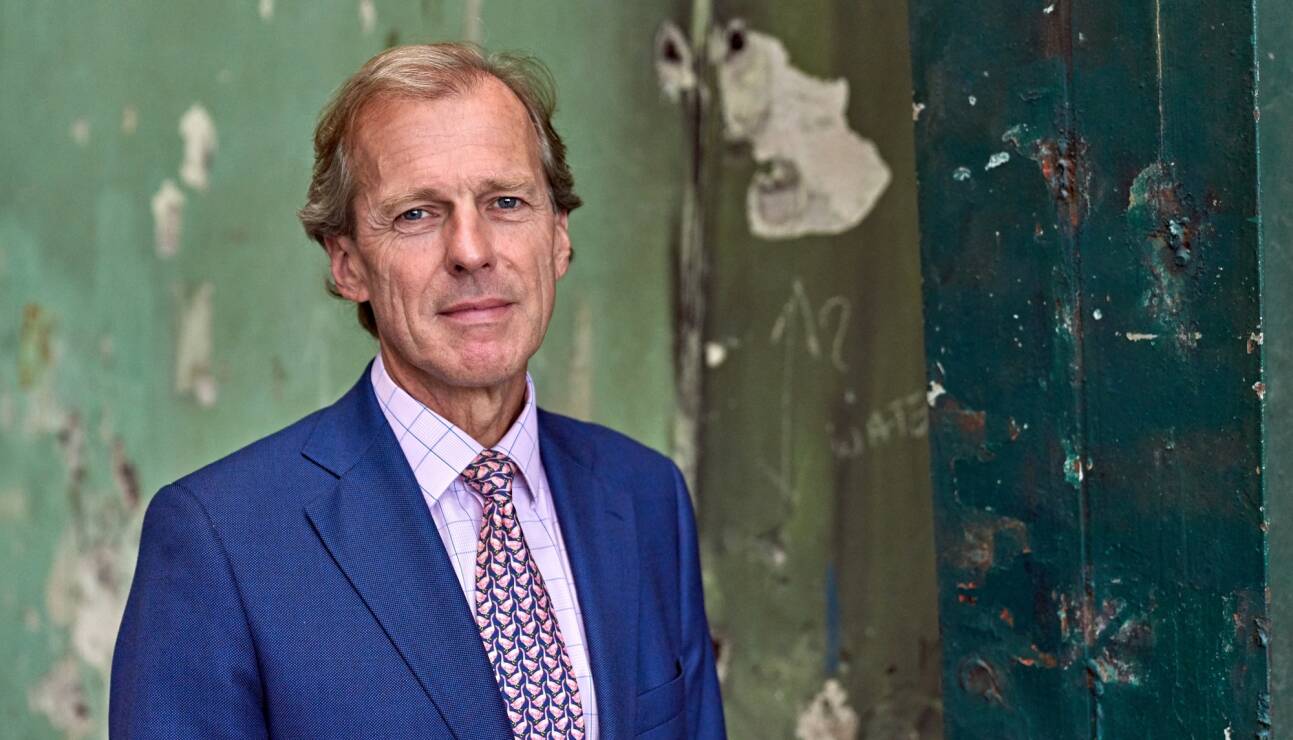
Allard Castelein
We all know that we can handle the challenges of climate change in technical terms, but politicians haven’t yet got to the point that they’re transparent about the broader consequences for society.
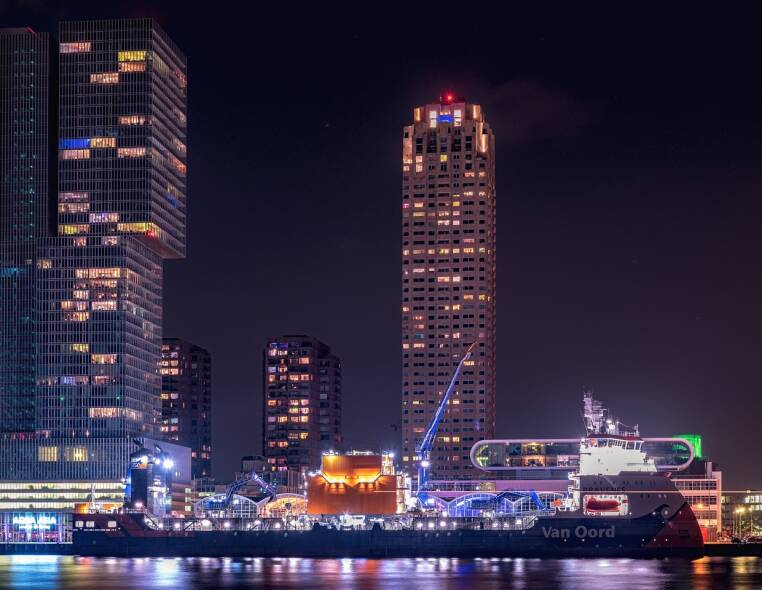
Coordinating role
‘We all know that we can handle the challenges of climate change in technical terms. But politicians haven’t yet got to the point that they’re transparent about the broader consequences for society. That’s leading to deadlock, with parties passing the buck. I believe that the energy transition is a collective responsibility. Our society is built on energy. It underpins our prosperity. At the same time, there is no system as complex as the energy system. That’s precisely why we need a greater coordinating role. Government has the opportunity to plan the energy transition and to develop a long-term policy in cooperation with its partners. The Transition Coalition supports long-term strategy and guarantees. All of Dutch society supported the Delta Works, and the project took many decades to complete. It was hugely expensive, but it was in our nation’s interest. The same argument applies to the energy transition. It too is in our nation’s interest and we need the same feeling of solidarity and acceptance to achieve it. We must be bold enough to seize the opportunity.’
Castelein speaking at the accelerator program Shakedown PortXL, in which Van Oord collaborates.
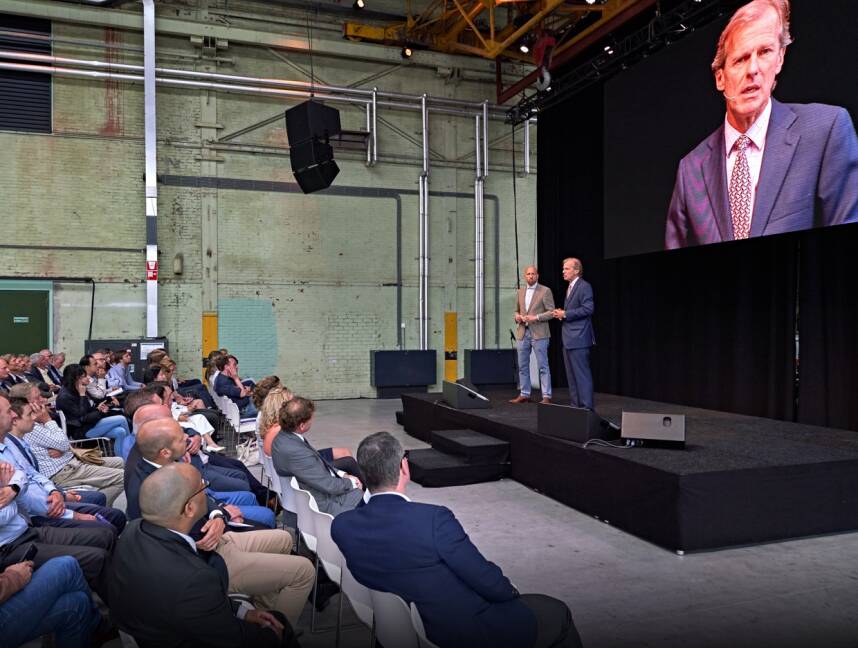
We began the interview with what may seem like an obvious question: is the energy transition moving fast enough? We expected the standard response: no. But Castelein’s answer is more nuanced. ‘That depends on your perspective. Looking back, I would say no. Looking at where we are now, I’d say the glass is more than half full; looking ahead to the future, I’m full of hope. But we’ll have to show whether that hope is justified.’
Opportunities
The founding of the Transition Coalition was an important step in the energy transition. The initiative came from Van Oord, Eneco, Siemens, Shell, the Port of Rotterdam Authority and other leading companies. ‘As a coalition, we made it clear immediately that the energy transition is an opportunity for Dutch enterprise. Now more than sixty companies have joined the coalition. It’s a complex challenge, involving a lot of different parties. To turn this group into a close-knit team, we have to agree on where we want to go and how we want to get there. We have a lot of work ahead, but we’re in a better place than we were two years ago.’
Having a conversation about sustainability with the CEO of the Port of Rotterdam Authority, Allard Castelein, is a unique experience. Outsiders may think he represents the fossil fuel industry. In reality he is a prominent advocate of the transition to a sustainable energy system.
